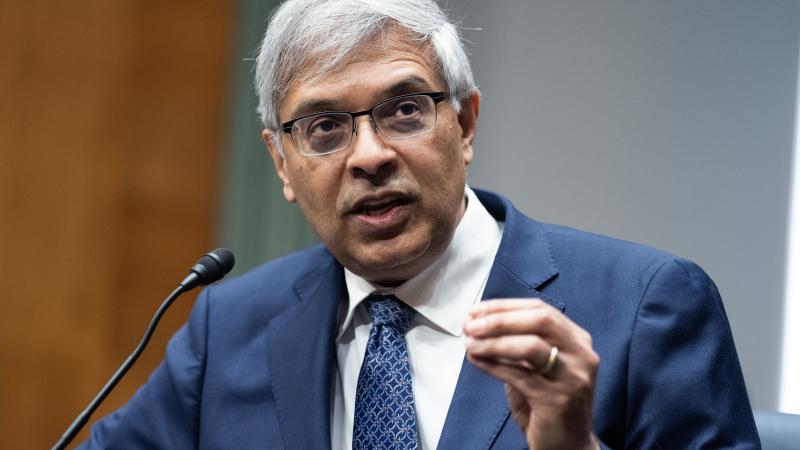Retirees face $18,100 benefit loss in 7 years unless entitlement programs changed, study says
The watchdog group noted that without entitlement reform, the actual size of the benefit loss would vary based on a couple’s age, marital status, and work history.
Dual-earning married couples are estimated to face a loss of $18,100 in annual benefits in seven years without the passage of some sort of entitlement reform, according to a new study.
"We estimate that this would be equal to an $18,100 annual benefit cut for a dual-earning couple retiring at the start of 2033 – shortly after trust fund insolvency," read a Committee for a Responsible Federal Budget (CFRB) analysis released on Thursday.
"At the same time, those retirees might experience reduced access to health care due to an 11 percent cut in Medicare Hospital Insurance payments. The cuts would grow over time as scheduled benefits continue to outpace dedicated revenues," the analysis also read.
Loss of benefits vary factor-to-factor
The watchdog group noted that the actual size of the reduction would vary based on the age, marital status, and work history of the retiree.
"For example, a typical single-earner couple would face a $13,600 cut, while a dual-earner low-income couple would face an $11,000 annual cut. High-income couples could see a cut of closer to $24,000," said the CRFB.
"While the absolute size of the cut would be smaller for a typical low-income couple than for a high-income couple, it would represent a larger share of their income and their past earnings. These cuts are in nominal dollars and would be 15 percent smaller in 2025 dollars," the group also found.
CRFB addressed why their estimates are "somewhat larger" than the findings in the latest Trustees’ report.
"That’s because the tax rate cuts and increase in the senior standard deduction from the recently enacted OBBBA [One Big Beautiful Bill Act] would reduce Social Security’s revenue from the income taxation of benefits, increasing the required cut by about a percentage point upon insolvency," the group said in their analysis. "If the expanded senior standard deduction and other temporary measures of OBBBA are made permanent, the benefit cut would grow larger."
Sen. Rick Scott, R-Fla., is among the lawmakers who have called for Congress to take on entitlement reform to prevent benefit cuts under Social Security and Medicare.
“As Florida’s U.S. Senator and the Chairman of the Senate Special Committee on Aging, preserving the benefits of Social Security and Medicare is one of my top priorities," he said when reintroducing his Protect Our Seniors Act legislation.
"So many Floridians depend on these programs, and after four long years of Joe Biden’s reckless policies and high inflation pushing them closer to insolvency, we must take action to protect them and keep our promises to beneficiaries," he added. In Florida, approximately 21.3% of the population is aged 65 or older, according to the Population Reference Bureau.
Scott's bill, if passed and signed into law, would create a "Budget Point of Order" and require a two-thirds vote against any legislation that the Congressional Budget Office (CBO) "determines would reduce or cut existing Medicare and Social Security benefits."
CRFB: Pledges to not touch Social Security are illusory
According to Scott's office, the bill would also change CBO scoring laws so savings to Medicare "cannot be used to offset or pay for spending outside of Medicare."
The CRFB concluded that lawmakers who are "pledging not to touch Social Security are implicitly endorsing these deep benefit cuts for 62 million retirees in 2032 and beyond."
The watchdog group called on policymakers to "tell the truth" about the finances of Social Security and Medicare and "pursue trust fund solutions to head off insolvency and improve the program for current and future generations."














